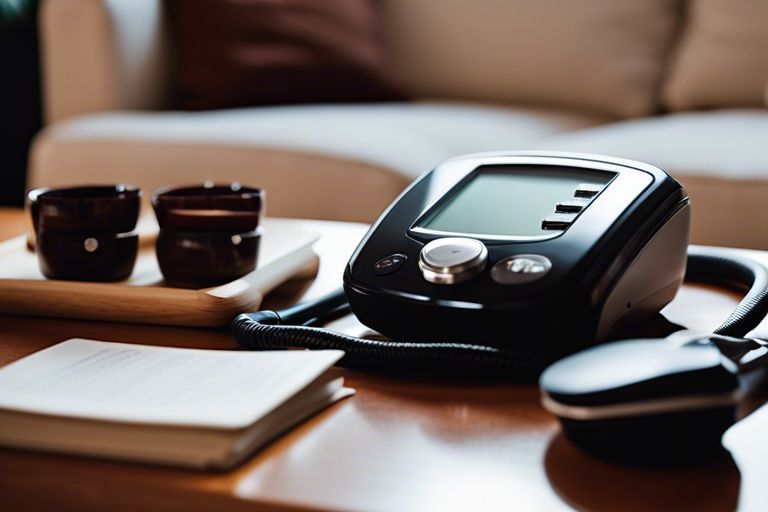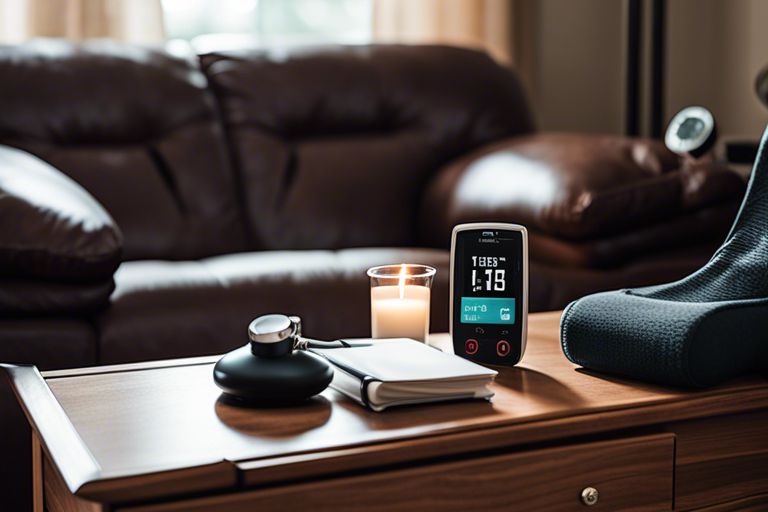
You know regular home health evaluations are crucial for monitoring your well-being. In this guide inspired by Dr. Atul Gawande’s approach, we’ll explore 7 important tips to help you conduct effective evaluations in the comfort of your home. From checking vital signs to stocking up on necessary supplies, these tips will empower you to stay on top of your health and catch any issues early on. Stay tuned for expert advice on maximizing the benefits of regular home health evaluations.

Key Takeaways:
- Regular evaluations: Conducting regular home health evaluations is crucial to monitor the well-being and progress of patients.
- Communication: Open and clear communication between healthcare providers, patients, and caregivers is necessary for effective home health evaluations.
- Documentation: Proper documentation of home health evaluations ensures continuity of care and allows for better decision-making by healthcare teams.


Establishing a Baseline
Before plunging into regular home health evaluations, it’s crucial to establish a baseline for your health. This baseline serves as a reference point for tracking any changes or developments in your well-being over time. By understanding where you currently stand in terms of your health, you can better assess the effectiveness of any lifestyle changes or interventions you may implement in the future.
Identifying Key Health Indicators
Any regular home health evaluation should begin with identifying the key health indicators relevant to your age, gender, and medical history. These indicators may include blood pressure, heart rate, cholesterol levels, weight, and any specific health concerns you may have. By monitoring these key indicators regularly, you can detect any potential health issues early on and take proactive steps to address them.
Creating a Health Journal
On your journey to better health, keeping a health journal can be immensely helpful. In your journal, you can document your daily activities, diet, exercise routines, and any symptoms or discomfort you may experience. This journal not only serves as a record of your health journey but also allows you and your healthcare provider to identify patterns or triggers that may impact your well-being.
Journaling can also help you track your progress over time and celebrate positive changes or milestones in your health. Additionally, it can provide valuable insights into the effectiveness of any treatments or interventions you may be undergoing. Consider sharing this journal with your healthcare provider during your regular evaluations for a comprehensive view of your health.
Scheduling Regular Evaluations
There’s no doubt that scheduling regular evaluations is crucial for maintaining good health and preventing any potential issues from escalating. Setting up a system to ensure these evaluations are done consistently is key to staying on top of your health.
Setting Reminders and Notifications
Regular reminders and notifications can be extremely helpful in making sure you don’t forget to schedule your evaluations. Utilize tools such as calendar apps, healthcare provider portals, or even setting up alarms on your phone to remind you of upcoming appointments. By incorporating these reminders into your routine, you can stay proactive about your health and ensure you don’t miss any important evaluations.
Prioritizing Preventive Care
One of the best ways to approach scheduling regular evaluations is by prioritizing preventive care. This means not waiting until you are experiencing symptoms to see a healthcare provider but instead, scheduling evaluations on a routine basis to catch any potential issues early on. By making preventive care a priority, you are taking a proactive approach to your health and well-being.
Regular evaluations are an necessary part of preventive care, as they allow healthcare providers to monitor your health and detect any potential problems before they become serious. By prioritizing these evaluations and scheduling them regularly, you are taking a proactive step towards maintaining good health.
Note, your health is the most valuable asset you have, so scheduling regular evaluations should be a top priority in your healthcare routine.
Preparing for Your Evaluation
Once again, it’s time to prepare for your home health evaluation. This step is crucial in ensuring that you get the most out of your visit and that your healthcare provider has all the necessary information to provide you with the best care possible. Here are some vital tips to help you prepare effectively.
Gathering Medical History and Records
Medical history plays a crucial role in your home health evaluation. Make sure to gather all your medical records, including any recent test results, medication lists, and details of past surgeries or hospitalizations. This information will give your healthcare provider valuable insights into your health status and help them tailor their care plan to your specific needs. Having a comprehensive medical history will ensure a more accurate evaluation and a better understanding of your overall health.
Writing Down Questions and Concerns
Gathering your thoughts and concerns before the evaluation is vital. Take some time to jot down any questions you have about your health, changes in your condition, or new symptoms you may be experiencing. Having a list of questions and concerns will help you make the most of your time with your healthcare provider and ensure that all important issues are addressed.
Recall, no question is too small or insignificant when it comes to your health.
Conducting a Thorough Self-Evaluation
Monitoring Vital Signs and Health Metrics
Keep a meticulous record of your vital signs and health metrics to track any changes or abnormalities. Regularly monitor your blood pressure, heart rate, temperature, and weight to ensure you have a baseline understanding of your health. With the advancements in technology, you can easily track these metrics using various health apps or devices.
Assessing Mental and Emotional Well-being
With self-reflection and introspection, assess your mental and emotional well-being on a regular basis. Pay close attention to any changes in your mood, sleep patterns, or stress levels. Mental health is just as crucial as physical health, and addressing any concerns early can prevent them from escalating.
Vital signs and health metrics may give you a snapshot of your physical health, but monitoring your mental and emotional well-being is equally important. Recognizing any signs of anxiety, depression, or other mental health issues is vital for maintaining overall well-being. Seek professional help if needed and prioritize self-care activities that promote mental wellness.
Identifying Red Flags and Warning Signs
After The Complete Guide to Understanding Home Health Care, it is crucial to be vigilant in identifying red flags and warning signs during regular home health evaluations. Recognizing early symptoms of chronic conditions is key to addressing concerns promptly and seeking professional help when needed.
Recognizing Early Symptoms of Chronic Conditions
The early detection of symptoms related to chronic conditions such as diabetes, heart disease, or respiratory problems is vital in ensuring timely intervention. Recognizing subtle changes in a patient’s health status, such as increased fatigue, difficulty breathing, or unexplained weight loss, can help prevent serious complications. Monitoring vital signs regularly and keeping track of any deviations from the norm can provide valuable insights into a patient’s overall health and well-being.
Addressing Concerns and Seeking Professional Help
An imperative aspect of addressing concerns during home health evaluations is having open communication with the patient and their caregivers. Recognizing when symptoms escalate beyond normal fluctuations and prompt action is required can prevent unnecessary hospitalizations or medical emergencies. Encouraging patients to report any new or worsening symptoms promptly and involving healthcare professionals in the decision-making process can lead to better outcomes and improved quality of life.
What are the key tips to consider for regular home health evaluations?
Regular home health evaluations are essential for maintaining overall well-being. Keeping track of vital signs, such as blood pressure and weight, is one of the reasons for regular evaluations. Additionally, monitoring medication usage and physical activity levels can help identify any potential health concerns early on.
Staying on Top of Medication and Treatment
For How to Evaluate Your Home Health Care Services and How to Improve Them, staying on top of medication and treatment is paramount to your health and well-being. It is crucial to manage your prescription medications diligently and adhere to your treatment plans and lifestyle changes for optimal outcomes.
Managing Prescription Medications
Managing your prescription medications is critical for your overall health. Make sure to follow your doctor’s instructions carefully and take your medications as prescribed. Keep track of your medication schedule and refill them on time to avoid any interruptions in your treatment plan. Additionally, communicate with your healthcare provider about any side effects or concerns you may have regarding your medications.
Adhering to Treatment Plans and Lifestyle Changes
Changes in your treatment plan or lifestyle recommendations are made to improve your health outcomes. It is vital to adhere to these modifications consistently to achieve the desired results. This could include dietary changes, exercise regimens, or medical procedures that are crucial for your well-being.
Medications and treatment plans are tailored to address your specific health needs, and deviating from them could impact your overall health negatively. Engage with your healthcare team regularly to discuss any challenges or barriers you may encounter in following your treatment plan and make necessary adjustments for better health outcomes.
Conclusion
Presently, prioritizing regular home health evaluations can significantly improve the quality of care provided to patients. By following these top 7 tips, caregivers and healthcare professionals can ensure that patients receive the necessary support to maintain their health and well-being in the comfort of their own homes. By incorporating these evaluations into routine care plans, patients can receive timely interventions and adjustments to their treatment plans, leading to better health outcomes and an enhanced quality of life.
Be mindful of, proactive monitoring and assessment of a patient’s health status can help prevent complications and address any issues before they escalate. By staying organized, communicating effectively, and involving the patient in their care, caregivers can create a supportive and patient-centered approach to home health evaluations. Ultimately, regular evaluations can empower patients to take control of their health and ensure that they receive the best possible care in the home setting.
FAQ
Q: Why are regular home health evaluations important?
A: Regular home health evaluations are crucial for monitoring the health status of individuals in their own homes, ensuring early detection of health issues, and preventing unnecessary hospitalizations.
Q: How often should home health evaluations be conducted?
A: Home health evaluations should ideally be conducted on a regular basis, such as every 3 to 6 months, depending on the individual’s health condition and needs.
Q: What are the benefits of regular home health evaluations?
A: Benefits of regular home health evaluations include early detection of health changes, medication management, assessment of home safety, and coordination of care with healthcare providers.
Q: Who typically conducts home health evaluations?
A: Home health evaluations are usually conducted by healthcare professionals such as nurses, physical therapists, occupational therapists, or home health aides, depending on the individual’s needs.
Q: What should one expect during a home health evaluation?
A: During a home health evaluation, the healthcare professional will assess the individual’s health status, medication management, mobility, home safety, and overall well-being to determine any areas of concern.
Q: How can one prepare for a home health evaluation?
A: To prepare for a home health evaluation, individuals should have their medical history, list of medications, and any specific concerns ready to discuss with the healthcare professional conducting the evaluation.
Q: What can individuals do after a home health evaluation to maintain their health?
A: After a home health evaluation, individuals should follow any recommendations made by the healthcare professional, stay compliant with medications, engage in regular physical activity, maintain a healthy diet, and stay connected with their healthcare team to ensure ongoing support and monitoring of their health status.


No Comments